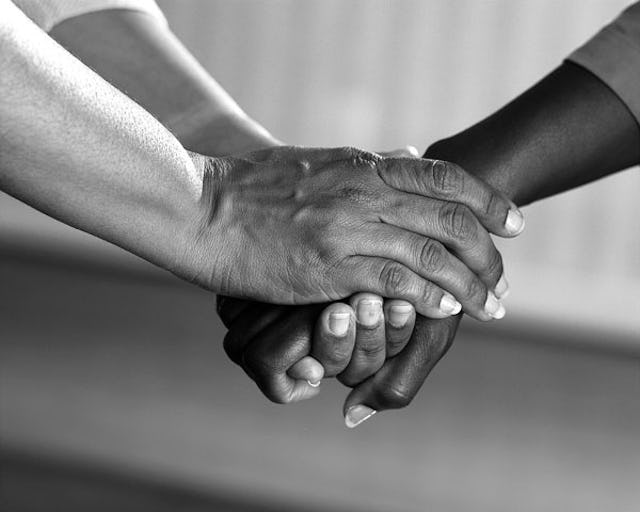Three Little Words That Will Make Anyone Feel Validated: 'Dude, That Sucks'

Not too long before the world imploded and school closed down, I was having lunch with a group of third graders. They were comparing lunches and debating trades with the seriousness of the New York Stock Exchange, considering the value of a common yet delicious Oreo versus a smaller but rarer piece of mochi.
As trades ended and cleanup began, one student, R, sat with a glum look on his face, barely cracking a smile even as his friends tried to include him in the conversation. “You look bummed. What’s going on?” I asked him quietly.
He sadly replied, “My mom forgot to pack my dessert, so now I don’t have any and I can’t trade with anyone!” He slumped down in his seat, looking at me and his buddy across the table for sympathy.
Before I could say anything, his friend T leaned forward. “My parents don’t let me have dessert in my lunch at all, so I don’t have it either, but I don’t let it bother me.”
R made intense eye contact with T. “But my mom forgot and I really wanted it today.” T shrugged his shoulders. R tried again: “Like I really wanted it. I’m super sad about it.”
I pulled T aside. “Look him in the eye, be serious, and say, ‘Dude…that sucks.’”
T wrinkled his nose at me. “But why? I never have dessert in my lunch, and I don’t complain about it.” R was watching us, so I made it quick. “Just try it. Walk over to him, say it, see how he reacts, okay?” T shrugged and walked over.
I resisted the urge to sidle closer and eavesdrop. Instead, I subtly watched R’s face change as T spoke to him. He relaxed. He smiled. I saw him nod, and walk away with a lighter step.
T came back. “Weird,” he said. “It worked.”
“Yeah,” I said. “You made him feel understood. Works almost every time.”
* * *
But that was back in March, and now we’re in the midst of both a deadly global pandemic and an American uprising against racial injustice and violence against BIPOC. The stakes are so much higher than we ever imagined. When we complain, our complaints have an edge of despair to them. This is literally life and death we’re talking about.
In times like these, when confronted with our own suffering, and uncertainty, it can be difficult to know what to do when presented with that of others. It’s just harder to stop and empathize when every molecule of our fight-or-flight response system is in constant overdrive.
Some people, overwhelmed, will turn away and ignore others’ pain, seeking to protect themselves in doing so. Some, like T, may look past it or discount it if they don’t recognize it or deal with it differently. We may be so caught up in our own problems that we can’t quite believe other people’s are just as hard. (Lest you think I’m throwing stones here, I’m pretty sure I’ve made plenty of accidentally callous statements about the soul-crushing difficulty of unexpected homeschooling and lack of childcare while not fully hearing some of the loneliness and isolation my child-free friends are feeling.)
And sometimes we don’t respond because, quite honestly, we don’t know what to do or say. We feel powerless. We worry about saying the right thing, the best thing, and end up saying nothing.
But maybe now’s the most important time of all for just a basic acknowledgement of someone else’s difficulties — whether or not you can identify with them. You don’t have to understand or approve of someone else’s troubles in order to make them feel understood and supported. You will be amazed at the response you get from just a few words.
And anyone can do it! It can take many forms, which may feel more or less authentic to you:
“I’m sorry to hear that.”
“This must be a lot to handle.”
“I’m here if you want to talk.”
Plus so many more. At their essence, they all say the same thing, the thing that we all hope to hear when we’re upset and having a bad day, the thing that says, “I hear you/I acknowledge you/I validate your feelings” in just three little words:
“Dude…that sucks.”
Works almost every time.
This article was originally published on